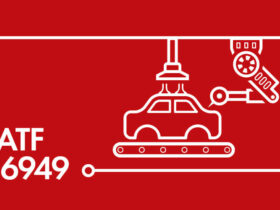Every construction site has its rhythm — the steady thud of machinery, the clang of metal, and the constant hum of equipment working in sync. It’s the sound of progress. But for those living or working nearby, that same rhythm can quickly turn into an unwanted disturbance.
Noise is an unavoidable part of construction. Yet, in today’s increasingly urban landscape, where projects are often just a few metres away from residential blocks, offices, or schools, managing that noise has become as important as managing time and budget.
So, the big question is: how can you stay on schedule while keeping your neighbours happy? The truth is, you don’t have to choose one over the other. With a bit of planning, communication, and the right materials, like using a quality noise barrier sheet, you can maintain both productivity and peace.
1. Start With a Realistic and Noise-Aware Schedule
Before the first machine hits the ground, think about your timeline not just in terms of what gets done, but when. Scheduling plays a massive role in how noise affects your surroundings.
If your site is close to residential areas, plan the loudest works, such as piling, demolition, or heavy concrete cutting, during mid-morning or early afternoon. Avoid evenings, weekends, and early mornings when people are more sensitive to noise.
Even small changes to the work schedule can prevent a lot of frustration later. When neighbours notice that your team respects quiet hours, they’re less likely to file complaints, even if some noise remains.
In short, smart scheduling helps you move fast without burning bridges.
2. Use Noise Barrier Sheets for a Quieter Site
When scheduling alone isn’t enough, physical sound control is your next best move, and this is where a noise barrier sheet can make all the difference.
These sheets act like a wall between your site and the surrounding community, helping to absorb and block sound before it travels too far. They’re lightweight, easy to install, and can be arranged around scaffolding, fences, or temporary hoardings.
The beauty of noise barrier sheets is their versatility. They don’t just control noise; they also help with site safety by reducing dust spread and improving the visual organisation of your work area. Plus, since they’re reusable and weather-resistant, they’re a long-term investment that keeps paying off on future projects.
For construction sites in dense areas like Singapore, where regulations around noise are strict, these sheets are practically a necessity, not just a nice-to-have.
3. Keep Your Equipment in Top Shape
It’s easy to overlook how much noise comes from worn-out machinery. A single loose bolt or rusted component can make equipment louder than it needs to be. Over time, that adds up.
Regular maintenance doesn’t just extend your equipment’s lifespan; it also keeps your site noticeably quieter. Make sure your team checks for rattling parts, lubricates moving components, and replaces any damaged fittings promptly.
Not only does this reduce noise, but it also boosts efficiency and prevents unexpected breakdowns that could throw your project off schedule. A well-maintained machine is a quiet, reliable machine.
4. Communicate Before Problems Arise
Sometimes, noise complaints don’t come from the volume itself — they come from the surprise. When people don’t know what’s going on, they tend to assume the worst.
That’s why it pays to keep an open line of communication with the community. Before any major or particularly noisy phase begins, send out a short notice to nearby residents and businesses. Include details like what type of work is being done, during which hours, and how long it will last.
You might even include a contact number or email where they can reach your team if they have concerns. This simple gesture shows that you care, and that can make all the difference in building trust and understanding.
Think of it as being a good neighbour, just with a hard hat and safety boots.
5. Train Your Crew to Be Noise-Conscious
Noise management isn’t just about materials and machinery; it’s also about people. Every member of your team contributes to the overall sound level on site.
Encourage small but meaningful habits like turning off idling engines, handling tools properly, avoiding unnecessary shouting, and being mindful of how materials are loaded or unloaded.
Consider running short training sessions or daily briefings to remind workers about quiet hours and site-specific noise rules. When your crew understands why it matters, they’re more likely to take it seriously.
At the end of the day, a noise-aware team is a more disciplined and efficient one.
6. Monitor Noise Levels Regularly
Even if you’ve done everything right, noise levels can change throughout a project. New equipment, shifting work zones, or changes in weather can all affect how sound travels.
That’s why regular noise monitoring is key. Use portable sound meters to measure decibel levels at different points around the site, especially near residential or commercial boundaries.
If readings start to creep up, take action quickly. You can adjust schedules, move certain machines farther from sensitive areas, or add more noise barrier sheets to reinforce protection.
Monitoring doesn’t just help you stay compliant with local noise regulations — it also shows that your company takes community welfare seriously, which can be a strong selling point for future projects.
7. Work With Partners Who Prioritise Compliance
You can’t control everything on your own, but you can choose the right people to work with. When hiring subcontractors or sourcing materials, partner with suppliers who understand the importance of noise management.
Whether it’s a vendor providing noise barrier sheets, equipment rentals, or scaffolding, look for those who meet quality and safety standards. They’ll not only help you stay compliant but also support your goal of maintaining a productive and considerate work environment.
Final Thoughts
Balancing construction speed with noise management isn’t about doing less — it’s about doing things smarter.
Incorporating noise awareness into your project planning, using effective materials like noise barrier sheets, keeping your team informed, and maintaining clear communication with the community can build efficiently and responsibly.
A quieter site doesn’t just mean fewer complaints; it means fewer delays, stronger community trust, and a smoother project from start to finish.
At the end of the day, success in construction isn’t only measured by how fast you build, but also by how well you build relationships along the way.











